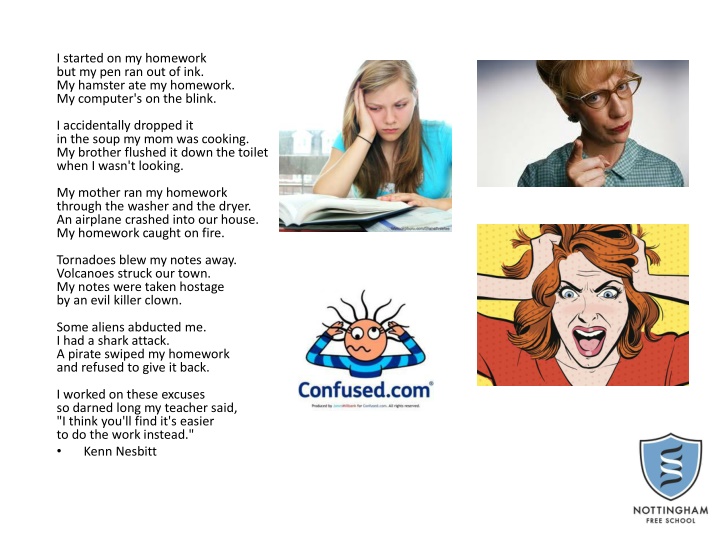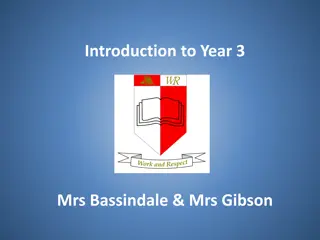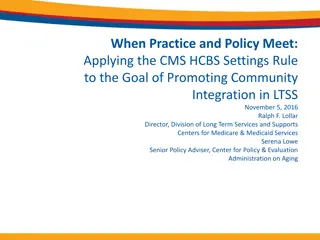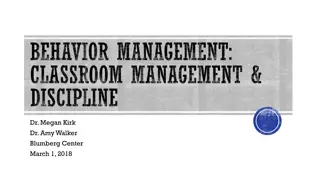Insights on Homework Management and Support in Educational Settings
School staff are addressing issues such as late homework and student concerns about homework through assemblies and rewards for good work. Parents have provided feedback on homework quantity and student struggles with organization. Objectives include understanding homework types and supporting students effectively. Homework aims to boost achievement, reinforce learning, encourage curiosity, and develop independent study habits. Tasks range from long projects to short research assignments.
Download Presentation

Please find below an Image/Link to download the presentation.
The content on the website is provided AS IS for your information and personal use only. It may not be sold, licensed, or shared on other websites without obtaining consent from the author.If you encounter any issues during the download, it is possible that the publisher has removed the file from their server.
You are allowed to download the files provided on this website for personal or commercial use, subject to the condition that they are used lawfully. All files are the property of their respective owners.
The content on the website is provided AS IS for your information and personal use only. It may not be sold, licensed, or shared on other websites without obtaining consent from the author.
E N D
Presentation Transcript
I started on my homework but my pen ran out of ink. My hamster ate my homework. My computer's on the blink. I accidentally dropped it in the soup my mom was cooking. My brother flushed it down the toilet when I wasn't looking. My mother ran my homework through the washer and the dryer. An airplane crashed into our house. My homework caught on fire. Tornadoes blew my notes away. Volcanoes struck our town. My notes were taken hostage by an evil killer clown. Some aliens abducted me. I had a shark attack. A pirate swiped my homework and refused to give it back. I worked on these excuses so darned long my teacher said, "I think you'll find it's easier to do the work instead." Kenn Nesbitt
What we have noticed in school Staff have noticed the following issues Late homework Questions about homework Worrying about homework Organisation and handing in of homework Presentation of homework Great variation in time spent and standards of homework What we did Mrs Douglas did a whole school assembly tackling these issues Celebrated great homework in assembly and rewarded discs Staff are recording homework on insight
Some great examples of homework Are on display
What you have told us so far Parents have fed back the following issues: Too much homework Not enough homework Students spending too long on homework Students struggling to organise and prioritise homework What we have done so far: Plan this evening . We will come back to this at the end of the evening We did You Said
HOMEWORK Objectives To know why we set homework To understand the different types of tasks we set and the challenges students face Can identify ways in which school and parents can better support students in their homework
Why do we set homework? Raise achievement Consolidate knowledge Extend learning Encourage curiosity and research skills Develop lifelong independent learners Develop study and work routines
What types of homework are set? Long Tasks Projects: longer pieces of work that pupils need to complete over a number of weeks Booklets prepared on a particular topic Prepare presentations/speeches/video s Craft: To make a model, mask, wooden spoon puppet etc Revision Short Tasks These should take no longer than 30 minutes. Research: sometimes students are asked to write something in their books, sometimes they are not. Staff will make this clear. This is normally to extend students knowledge from their lesson or to prepare pupils for next lesson. Written: answers to questions or other written tasks Posters/Pictures: To summarise or consolidate knowledge, extend artwork Prepare presentations/speeches/video s Craft: To make a model, mask, wooden spoon puppet etc
How much homework is set? Monday Science History* Spanish Tuesday Design Drama* Wednesday English Maths Art Thursday English Geography* Philosophy & Ethics* English Philosophy & Ethics* Friday Maths Science 7a Science Spanish Design Drama* Art English Maths History*/ Geography* Maths Science 7b Science History* Spanish Drama* English Maths Design Art English Maths Philosophy & Ethics* Art English Geography* Philosophy & Ethics* English Geography Science Maths Science 7c Science History* Spanish Design Drama* Maths 7d
How is homework set and recorded Homework will be displayed by the teacher with a date due in lesson time. Homework should be recorded in the pupil planner as a first port of call. Teachers will give assistance if pupils need help writing it in. Teachers will also record homework on Insight which you can check and print out.
How is homework assessed? This will vary between subjects and different homework tasks.
What happens if homework is not done? Students receive 1 chance, this is normally written in the pupil planner If homework is not completed by the next lesson a detention is set If this continues you will be contacted
BACK TO SCHOOL Imagine you are in study support on Wednesday after school. 1. Use the cards to prioritise your homework 2. Choose one to complete now!
History: Complete all cartoons on sheet 13th Oct Drama: Define physical theatre, how have I used it? 14th Oct Spanish: Learn first column of blue vocab sheet 14th Oct Science: Complete sheet and design cell (optional) 13th Oct Spanish: Design an A4 leaflet/poster about Spanish festival Dia de la Hispanidad 14th Oct English: Half hour on sonnet 13th Oct Art: Finish Portrait, see sketch book 15th Oct Geography: Complete 1 task p1-3 from booklet and advertising script 15th Oct Art: Nelson Mandela, research portrait pictures and write about them. Basic details 15th Oct Maths: Complete sheet 13th Oct
How to support your child with their homework
Or how to turn this to this
Why is it important for parents to be involved in homework? Studies in Britain have shown that children who are supported by their families with homework are likely to perform significantly better in academic examinations at 16 years old and beyond than those who do not. By showing an interest you are communicating the fact that school work is important and needs to be taken seriously.
Issues that students face with homework Organisation Prioritising tasks Understanding the tasks Focus & concentration Time management Quality work
How you can help Organising, prioritising and time management Check your child s planner and Insight every day Provide some space and time Get into a routine Use rewards Give time limits Limit the use of TV/electronic devices that sap time and focus!
How you can help Quality tasks Read through the instructions and help to get them started Encourage your child to talk to staff if ever unsure Check the end result for quality Test them Spanish vocabulary, spellings, times tables etc Ask questions Encourage reading
How you can help Practicalities Have a homework folder Label the pieces of work with the child s name, teachers name and due date Check all pieces are in the folder & school bag ready for the next day
We understand! Family life is very busy Good communication is vital It s a joint effort
You Said, we did On your post it write down anything about homework which you would like to be addressed. Stick it to the board We will compile these and act upon them We aim to post our responses on the school website You said Clearer instructions Too much homework We did























